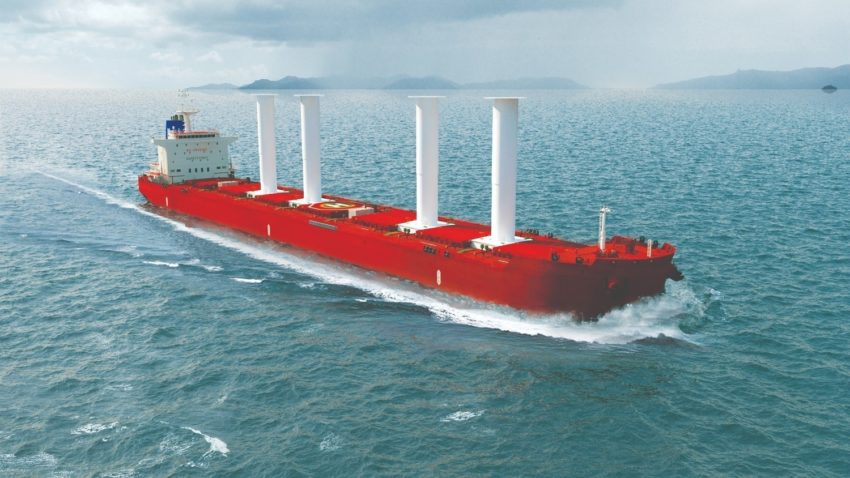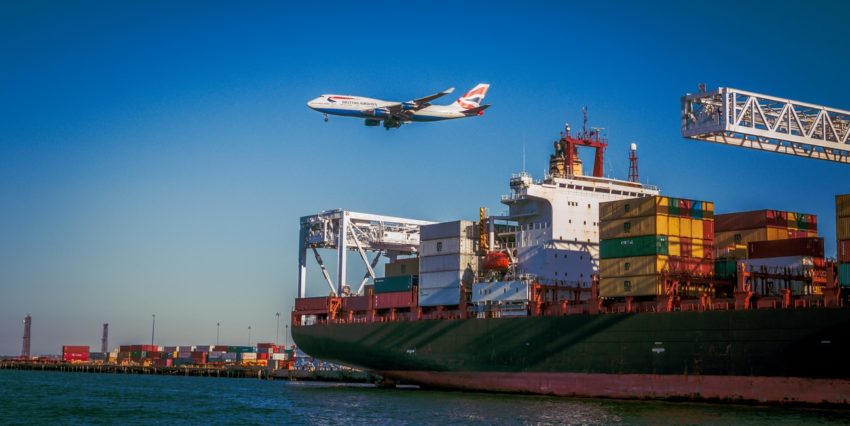There are many conveniences in everyday life that we often take for granted—one of which is a local, immediate access to whatever product we desire. Irregardless of where the product is manufactured, it always seems to magically find its way to store shelves or homes, ready for consumption.
However, we seldom consider the cost of such a luxury and grossly underestimate its magnitude. A staggering number of all consumer goods are transported by sea: ninety percent of all goods will pass through a large body of water at some point in their journey from the factory to a customer.
According to the Financial Times, over 90,000 ships made voyages across the world’s oceans, burning two billion barrels of thick, heavy crude, emitting a plethora of various pollutants and accounting for 2-3% of the world’s greenhouse gas emissions.
Fortunately, regulators are cracking down on this environmental issue and major shipping financiers are considering the effects of the regulatory push towards cleaner fuel and more eco-friendly seafaring vessels. This is due to the fact that the recent regulatory efforts have yielded tangible results: in 2020, the International Maritime Organization (IMO) is limiting the amount of Sulfur that can be present in the heavy fuels utilized by oceangoing vessels.
On this edition of Impakter’s Deal of the Week we take a look at some of the – few – startups trying to solve this largely overlooked environmental issue. Could shipping industry become more sustainable?

Neoline, a startup funded by car manufacturer Renault, is looking to build wind-powered ocean-going vessels to transport vehicles for the French car company. The innovation will reduce emissions by roughly 90 percent. Equipped with 4200 square meter sails, the Neoliner is designed to have a carrying capacity of 500 cars or 280 containers and will utilize diesel-electric propulsion in order to make sure that the vessel always reaches its destination on time. The diesel is not a heavy oil, but rather a special kind of Marine gasoil that is much lighter and has cleaner emissions.
During its journey, the Neoliner ‘s travel speed is 11 knots on average, as opposed to the traditional average speed of 15 knots for the traditional vessel. The benefit of this compromise is a near-half reduction in energy consumption, dramatically lowering fuel costs for ship owners.
Clearly, Neoline has massive potential to transform the shipping industry for the better, and sometimes reverting to a traditional solution is best. The ship, however, is still only in its prototype phase and has not been constructed yet. However, Neoline is worth mentioning due to the lack of other entrepreneurial efforts to address this issue.

Although its solution is similar to that of Neoline—leveraging wind power in order to cut fuel consumption and emissions, this U.S. startup has invented retractable, 50-foot steel cylinders that spin due to the Magnus effect created by winds, generating thrust and allowing for lower engine usage.
RELATED ARTICLES -MORE DEALS OF THE WEEK!
![]() Deal of the Week: Mira Therapeutics, A Tech Solution for PTSD
Deal of the Week: Mira Therapeutics, A Tech Solution for PTSD
![]() The Quest for Clean Water: Startups and Their Solutions
The Quest for Clean Water: Startups and Their Solutions
One of the most valuable aspects of the invention is its scalability: Magnuss claims that the design can be modified in order to allow almost all current and new vessels to utilize the invention. The sails are a retrofit solution that will allow thousands of shipping companies to survive the new regulations being imposed by the IMO, as the sails have been made to reduce the consumption of fuel by over 50%, creating a massive incentive for shipowners to invest in its technology.

Taking the limit number of clean shipping solutions into consideration, it is truly disappointing to see how few innovators have sought to tackle the environmental threat that is commercial shipping. The largest environmentally-friendly initiatives are coming from those who will be hurt by the new regulations the most: large container-shipping corporations. Perhaps, pollution from shipping vessels is one of the few problems that today’s technology can’t solve, as indicated by the lack of feasibility in electric shipping containers. In many aspects of modern society, the future is now—but in the case of sustainable shipping it seems as though we will have to wait.
In the Cover Photo: A container ship. Cover Photo Credit: Unplash.
EDITOR’S NOTE: The opinions expressed here by Impakter.com columnists are their own, not those of Impakter.com.














